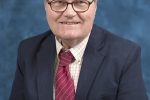Are you Okay? Are we Okay?
Years ago, the city of Camas, WA offered a safety program for elderly and people who experienced special needs. The police department of Camas, WA operated a program called “Are You Okay “.
I know about this program because my mother benefited from this service.
An operator from the Camas Police department would call every morning at 7:00 AM to check in with the person. This was a tremendous idea because if you were living alone and you were vulnerable, by having someone call you every day and check in to see that you were safe, it would alleviate a lot of potential complications.
No doubt that this program was a lifesaver, perhaps prevented people from falling, overdosing on medication, or having strokes and laying on the floor for hours on end unattended.
Traditionally, Americans have prided themselves on being independent. As Ralph Waldo Emerson would say, we cherish the fact that we are “self-reliant. “
But along with this comes the possibility of experiencing loneliness. The Surgeon General of the United States, Dr. Vivek H. Murthy MD. Has written a book about this phenomenon “Together: The Healing Power of Human Connection in A Sometimes-Lonely World. “(2020).
Dr. Murthy argues that loneliness has become an epidemic in our country. Murthy cites data from a Harvard study that revealed that inner-circle relationships were better predictors of health and happiness throughout life than IQ, wealth, or social class. Having someone you can call for help at 3:00 AM can be a buffer against mental and physical decline. The people who were the most satisfied in their
When you look at our country right now, one could argue that we are not very affiliative. We drive to work alone, work in our offices or cubicles alone, sometimes eat alone and stay hunched over our computers, our tablets, our phones and surf the internet and explore social media for hours on end.
It’s no wonder that some people might not find this kind of life satisfying nor meaningful.
You don’t hear that much any more about people bowling weekly in a bowling league, or people playing Bridge or other card games weekly.
We have become a more isolative society that has been influenced by the digital world that we utilize every day.
Again, its not an accident that we are seeing higher rates of Depression, Anxiety, and other mental health maladies.
The United Kingdom has launched the Campaign to End Loneliness: www.campaigntoendloneliness.org.
Their program reports that one out of 10 workers in the UK report experiencing workplace loneliness. They have also launched volunteer programs enabling workers to contact residents in care homes whom they can contact either over the phone, via computer or in person.
Thus far, the Campaign to End Loneliness has shown great promise to help improve the lives of people in Britain and elsewhere.
This type of program could also be implemented here in the United States.
The Beatles reminded us:
“All the lonely, people, where do they all come from?
“All the lonely people, where do they all belong?”
(Eleanor Rigby)
We can make life better for others and for ourselves.
We can do this together rather than staying alone in our own silos.
May this happen for all of us.
May it be so.
Rev. Peter E. Bauer is a United Church of Christ minister. He has been a regular contributor to the Huffington Post and Medium.Com.

